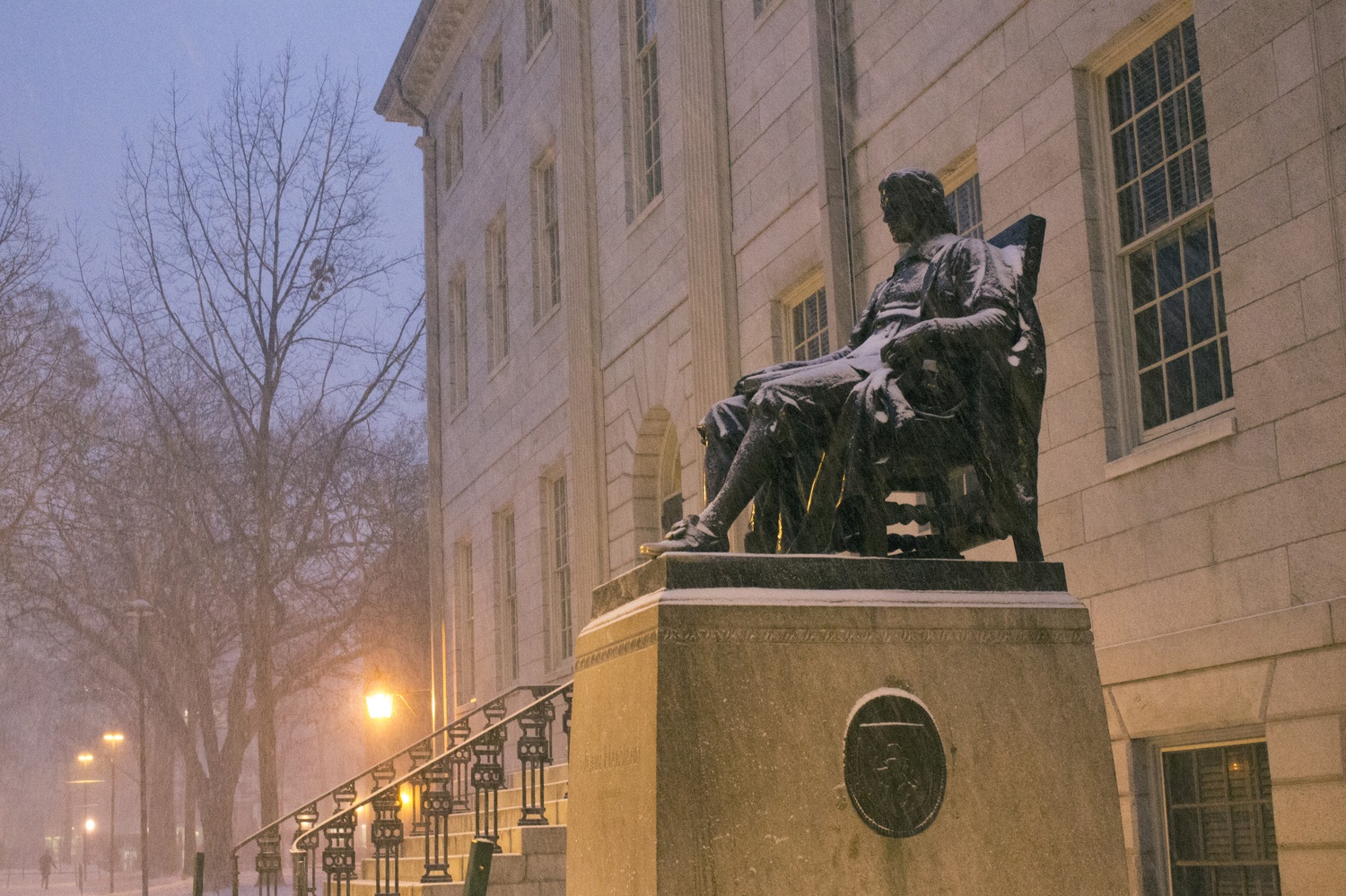Little is known about his short life: Who is John Harvard?
Originally named Newton, the college's name was changed to Cambridge in 1638, but later, following the death and will of John Harvard, it was decided to change its name to "Harvard" in 1639.

You will ask, who is this John Harvard, where did he come from, why is his name?
Little is known about John Harvard's short life (1607-1638). His father owned a butcher shop and tavern. His mother is the daughter of a mayor who is a cattle trader. He lost his father and four siblings in the plague epidemic of 1625. Only his mother and little brother remained. Although his mother remarried a rich man, that husband died soon after and the property was left to the Harvard family.
The reason I am telling these very briefly is so that no questions arise as to how John Harvard came to have so much money.
John Harvard (1607–1638) was an English dissenting minister in colonial New England whose deathbed bequest to the "schoale or colledge" founded two years earlier by the Massachusetts Bay Colony was so gratefully received that it was consequently ordered "that the Colledge agreed upon formerly to be built at Cambridge shalbee called Harvard Colledge." John Harvard was born in Southwark, England. A graduate of Emmanuel College of the University of Cambridge, he emigrated to New England in 1637. Harvard University considers him the most honored of its founders—those whose efforts and contributions in its early days "ensure its permanence"—and a statue in his honor is a prominent feature of Harvard Yard.
In the mid-1500s, a religious reformist movement called Puritanism began in England. Some Puritans, who were under the siege of the church and the kingdom, were among those who immigrated to the New England region of America in the first half of the 1600s, including John Harvard and his wife. In 1637, he began to be known as the rich man of Massachusetts with the inheritances he had in the country he came to. His wealth and donations carried him to high positions in the city government. However, he was only 30 years old when he died about a year later, in September 1638.
Inheritance from his father, getting richer after his mother's second marriage, moving his property, property, money, and whatever he had to the country he immigrated to, and rising to the upper levels of the city in a very short time with donations.
When Harvard died in 1638, he left half his estate, his library of classical and theological texts, to a college whose activities were supervised by the Grand and General Court of the English Colony of Massachusetts Bay. Historians determined the bequest to be approximately $375, which was a huge amount of money at that time and was also the school's largest bequest or donation to that date.
The school was founded in 1636, and in 1639 the Massachusetts General Court decided that the school should be named Harvard College in gratitude to its first great benefactor. Harvard College is the oldest institution of higher education in the United States.
Therefore, John Harvard is remembered in the pages of history not for his achievements but for his generous donation.
Harvard University from Past to Present
Harvard was established in 1636 by a vote of the Grand and General Court of the Massachusetts Bay Colony. In 1638, he had the first known printing house in North America. It is known that the university had a classical curriculum based on the British university model in its early years. Although most of its first graduates were clergy; Harvard has never been affiliated with any particular denomination. In 1708 John Leverett gave the first signs of the university's return to intellectual independence.
Founded under the name 'New College' by the Massachusetts Assembly on March 13, 1636, the school received donations for the first time in 1639 took the surname of its first donor, John Harvard, and continued its existence as Harvard College.
After its establishment, it hosted many different faculties.
